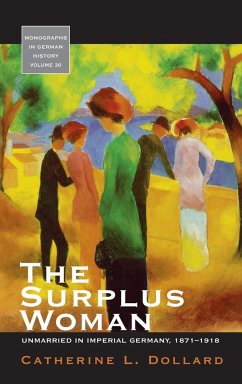The first German women's movement embraced the belief in a demographic surplus of unwed women, known as the Frauenüberschu , as a central leitmotif in the campaign for reform. Proponents of the female surplus held that the advances of industry and urbanization had upset traditional marriage patterns and left too many bourgeois women without a husband. This book explores the ways in which the realms of literature, sexology, demography, socialism, and female activism addressed the perceived plight of unwed women. Case studies of reformers, including Lily Braun, Ruth Bré, Elisabeth Gnauck-Kühne, Helene Lange, Alice Salomon, Helene Stöcker, and Clara Zetkin, demonstrate the expansive influence of the discourse surrounding a female surfeit. By combining the approaches of cultural, social, and gender history, The Surplus Woman provides the first sustained analysis of the ways in which imperial Germans conceptualized anxiety about female marital status as both a product and a reflection of changing times.








